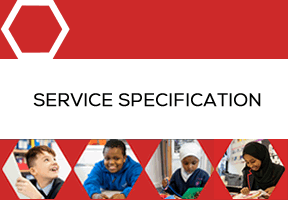What is an Educational Psychologist (EP)?
Educational psychologists (EPs) are ‘applied psychologists’ who use their knowledge of psychology and child development to help improve the learning and wellbeing of all children and young (CYP) aged 0-25 years. Educational Psychologists in Training (EPiTs), hold psychology qualifications and are undertaking an accredited doctoral training programme to qualify as an EP. They undertake the same role, under the supervision of a qualified EP.
What does an EP do?
EPs support schools and settings to achieve the very best outcomes for CYP. The aim is to help them progress and receive the support needed to overcome barriers which might relate to learning, communication, social and emotional wellbeing, physical needs, sensory issues, or other circumstances that might be impacting at a particular time. EPs often work with CYP who have special educational needs, those at risk of exclusion and those whose life chances are impaired as a result of social and emotional deprivation.
The range and scope of EP work is very broad, working with teachers, parents, professionals, and other staff to assess and identify needs, develop skills, and design interventions to help improve educational attainment and emotional resilience, and promote inclusive practice.
Services
What does the Educational Psychology Service (EPS) offer?
An overview of the type of work that EPs can offer is included below. Further information can be found by downloading the service specification further down this page.
Consultation & Assessment
The EPS offers a consultation model of service delivery, a collaborative process aimed at reaching a better understanding of the problem being discussed. This can relate to an organisational issue, an issue affecting groups of CYP (e.g., whole classes) or a particular CYP where there is some concern. EPs draw on psychological models and research to facilitate a better understanding of factors contributing to the issue being discussed.
EPs will gather information from a range of sources and decide what type of involvement would best address the concerns identified. This might result in the EP undertaking observations or further direct assessment work.
More information about the consultation model used by the EPs may be found here.
Intervention
Usually, EPs will work collaboratively with setting staff, and/or parents to jointly develop bespoke intervention plans that address the identified areas of concern. Agreed actions and intervention plans are typically carried out by setting staff; however, in some situations, EPs might also deliver direct interventions. For example:
- Video Interaction Guidance (VIG)
- Individual or group sessions using Cognitive Behavioural Approaches
- Motivational Interviewing
- Individual or group sessions using Solution Focused Approaches
- Multi-Family Groups
- Parent workshops and drop-in sessions.
Training & Supervision
EPs can design bespoke training programmes, that meet the needs of the settings in which they work. As well as delivering training, EPs can support settings to apply their learning to improve their practice and evaluate the impact. Examples of training topics recently delivered by the EPS include:
- Cognition & Learning
- Precision Teaching
- Working Memory
- Executive Functioning
- Meta-Cognition
- Social, Emotional & Mental Health
- Zones of Regulation
- Emotion Coaching
- Emotionally Based School Avoidance (EBSA)
- Raising Self-Esteem and Resilience
- Supporting Transition
- Trauma Informed-Approaches
- Attachment
- Specific needs
- ASD
- ADHD
- Anxiety
- Low Mood
- Voice of the child and family
- Person Centred Approaches
- Active Listening
EPS also delivers Emotional Literacy Support Assistant (ELSA) training and supervision. For further information and to book a place please contact elsa-intervention@royalgreenwich.gov.uk.
Research & Policy Development
EPs have training and experience of carrying out research. They can support schools and settings in undertaking research projects and developing policy. This might include:
- Supporting settings to select interventions and pre- and post- evaluation tools to monitor the impact
- Supporting schools and settings to make sense of and analyse data (e.g. school exclusion data)
- Conducting interviews with CYP, staff, and/or parents (individual or in groups) to explore their views.
Assistant EP support
Assistant EPs are psychology graduates with experience working with CYP, and in interest in training to be an EP. AEPs can run specific interventions, support implementation of interventions and deliver training. Under the direct guidance and supervision of EPs, AEPs can work directly with CYP, teachers, parents, and families to support EP’s work. This might include observing and meeting children to gather their views, completing selected assessments, gathering information on behalf of the EP, and helping to facilitate person-centred meetings.
Costs
The cost for Royal Greenwich schools for September 2024 - August 2025 is £560 per visit.
A visit may take place onsite, offsite or a combination of both and is typically 3-hours, with a further 3-hour allocation for any associated administration, data analysis and interpretation, research, and report writing.
Delivery of bespoke packages of support by AEPs such as delivery of training, or supporting implementation of interventions is charged at £342 per day. please contact us to discuss requirements.
Non-Chargeable Services
- Providing psychological advice as part of a child or young person’s Education, Health and Care needs assessment (EHC) or EHC re-assessment
- Offering a rapid response to school leadership teams to support them in helping their school community following a critical incident or sad event
Should your school/setting have any complaints or concerns about traded EP service, the complaints policy can be found here.
Service Specifications
Contacts
Acting Principal Educational Psychologist
07395 257 289
sinead.neal@royalgreenwich.gov.uk

